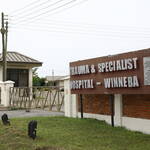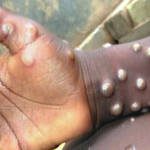Ghana yesterday joined the rest of the world to celebrate the 2022 World Breastfeeding Week to raise awareness and galvanise support for the practice.
The global campaign, which is observed from August 1 to 7 is coordinated by the World Alliance for breastfeeding.
This year’s celebration is on the theme: “Step up for Breastfeeding – Educate and Support,” and focuses on enhancing the capability of those who must safeguard, support, and promote breastfeeding at all societal levels.
Breastmilk is specially formulated to satisfy the developing and medical needs of children, making nursing the gold standard for newborn and child nutrition.
Breastfeeding also serves as a baby’s first vaccination, protecting them from a variety of common childhood ailments, the statement added.
It is key to sustainable development strategies post-pandemic, as it improves nutrition, ensures food security, and reduces inequalities between and within countries.
In addition, it is a key to child survival and a developmental strategy for improvement in a country’s economic gains, which is an important issue as the country recovers from the pandemic.
Breastfeeding mothers benefit from a warm network of support, including help with housework, call-ups, and the construction of an enabling environment from healthcare systems and staff, family, friends, neighbors, and coworkers.
Breastfeeding is the ideal way of feeding babies, offering them the nutrients they need in the right balance that protect them against childhood diseases.
However, poor breastfeeding and nutrition in the formative years of children can cause irreversible damage to the physical growth and mental development of the child.
In Ghana, 52% of children younger than six months are exclusively breastfed.
Breast milk contains antibodies that build body immunity against virus and bacteria among babies and infants.
It is safe, clean and contains antibodies which help protect against many common childhood illnesses.
Breast Milk provides all the energy and nutrients that the infant needs for the first months of life, and it continues to provide up to half or more of a child’s nutritional needs during the second half of the first year, and up to one-third during the second year of life.
Studies show that exclusive breastfeeding reduced the risk of overweight or obesity in children by 13%, helping to fight chronic diseases.
Breastfed children perform better on intelligence tests, are less likely to be overweight or obese, and less prone to diabetes later in life.
Women who breastfeed tend to recover from childbirth faster than women who choose not to nurse their babies.
Breastfeeding may reduce your risk of ovarian and breast cancer.
It may also decrease your chances of developing rheumatoid arthritis, diabetes, hypertension, and cardiovascular disease as you age.
Typically, menstruation returns approximately one month after mother stops breastfeeding exclusively.
However, breastfeeding can prevent period from returning for three–six months or even longer.
The health benefits of exclusive breastfeeding practices in both the short and long term accrue to breastfed infants, mothers, families and the society at large.
Therefore, intensifying awareness on breastfeeding is not just a sole responsibility of the woman, but rather a shared and collective responsibility of the entire society.
- Church of Jesus Christ, Ga Mantse Foundation renovate Adabraka School - 27 June 2024
- Manufacturers, Trade Minister tussle over proposed cement price regulation - 26 June 2024
- Work begins on Nima-Paloma drains - 26 June 2024




